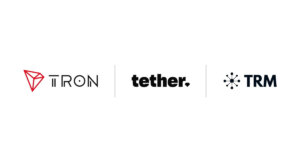 Hong Kong to crack down on crypto money launderers in the aftermath of $193M JPEX scandal
Hong Kong to crack down on crypto money launderers in the aftermath of $193M JPEX scandal Hong Kong to crack down on crypto money launderers in the aftermath of $193M JPEX scandal
To plug regulatory gaps exposed by the JPEX scandal, Hong Kong's customs department is enhancing cross-border anti-money laundering efforts.

AI GENERATED IMAGE VIA DALL-E 3
Hong Kong’s Customs and Excise Department is looking to tighten regulatory measures to address the money-laundering risks associated with cash-for-crypto shops, South China Morning Post reported on Oct. 21. The decision comes after police arrested some of these store owners in connection with the alleged $192.7 million fraud perpetrated JPEX crypto exchange.
In Hong Kong, traditional money changers are overseen by the Customs and Excise Department. However, over-the-counter (OTC) cryptocurrency exchange shops currently operate without licensing or regulatory oversight. Some of these OTC shops promoted JPEX’s investment offerings, which the Securities and Futures Commission (SFC) deemed “too good to be true.”
Louise Ho Pui-shan, the commissioner of Customs and Excise, said that Hong Kong regulatory bodies are reviewing options to fill the regulatory gaps exposed by the JPEX scandal. Speaking on television, Ho said:
“There are two aspects to [regulating] these OTC exchange shops. One aspect involves combating money laundering and terrorist financing and the other is investor protection.”
According to Ho, in order to improve Hong Kong’s crypto regulatory regime, both these aspects need to be considered.
Ho said that the customer department has witnessed increased crypto money laundering cases, especially in large-scale schemes. She noted:
“Financial technology is becoming more mature, so we have observed increasing activity in virtual asset transactions, which can easily be used by criminals for money laundering as the transactions are more concealed and not restricted by time and location.”
Therefore, her department intends to enhance international cooperation to combat money laundering facilitated by the anonymity of cryptocurrency transactions.
Later this month, Ho’s department will sign a memorandum of cooperation with its South Korean counterpart to bolster intelligence sharing and enforcement collaboration. Additionally, the department plans to promote international cooperation against such crimes as it prepares to assume the role of vice-chair for the Asia-Pacific region at the World Customs Organization for a two-year term starting in July 2024.
While Ho did not confirm whether her department is actively involved in reviewing crypto regulations, she said there is “always room to improve the law enforcement and surveillance regime.”
JPEX Scandal
Last month, JPEX users started reporting difficulties in withdrawing assets from the platform, which arbitrarily hiked withdrawal fees to exorbitant amounts. The SFC called out some of the platform’s duplicitous actions, including false claims of being regulated in Dubai.
JPEX had used aggressive marketing tactics, including billboards and influencer marketing, to gain customers. Some of the influencers involved in promoting the platform have been arrested.
The JPEX scandal has shaken the trust of Hong Kong investors in the entire asset class. Police have arrested 28 people linked to the alleged fraud after receiving over 2,500 complaints from victims. The police investigation into the matter is still ongoing.
Bitrace, a blockchain analytics firm, reported last month that some Tether tokens processed in online wallets associated with JPEX were linked to money laundering and online gambling, raising concerns about the contamination of the tokens.



 CryptoQuant
CryptoQuant 






















































































